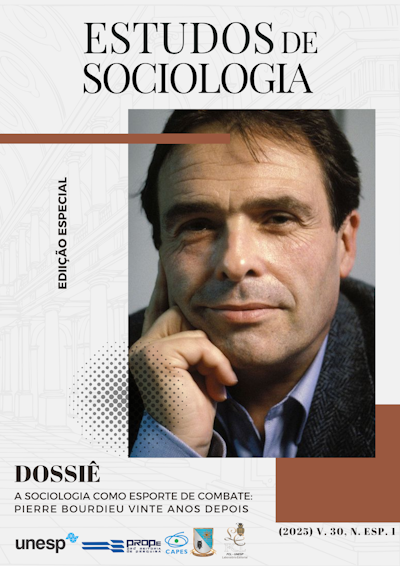As razões (do sucesso) de Olavo de Carvalho (1983-2016)
DOI:
https://doi.org/10.52780/res.v30iesp1.19744Palavras-chave:
Olavo de Carvalho, Antipetismo, Anti-intelectualismo, Filosofia no Brasil, Sociologia dos intelectuaisResumo
Este trabalho sustenta que a principal razão do sucesso de Olavo de Carvalho/OC (1947-2022) consistiu no encaixe único entre suas “estratégias de escritura e de autor” e o mercado das reações antipetistas, no início das gestões presidenciais consecutivas de Luís Inácio Lula da Silva e Dilma Rousseff (2003- 2016). Por um lado, OC treinou-se, desde os anos 1980, no enfrentamento de acadêmicos na mídia impressa carioca, prática que lhe garantiu uma posição entre filósofos católicos polígrafos e a acumulação primitiva de capital anti-intelectual. Por outro lado, as políticas educacionais petistas desestabilizaram hierarquias simbólicas e estimularam expectativas econômicas e culturais que não satisfez. OC soube fazerse porta-voz destas frustrações nacionais pois há décadas era portador de desilusões análogas. O caso em tela suscita reservas críticas à sociologia dos intelectuais, por sua inusitada desatenção ao nexo entre sistema de ensino, morfologia e política na análise do mercado de “opiniões” em que Olavo “tem razão”.
Downloads
Downloads
Publicado
Como Citar
Edição
Seção
Licença

À revista Estudos de Sociologia ficam reservados os direitos autorais pertinentes a todos os artigos nela publicados.
Os artigos publicados e as referências citadas na revista Estudos de Sociologia são de inteira responsabilidade de seus autores.
A Estudos de Socilogia utiliza a licença https://creativecommons.org/licenses/by/4.0/ (CC BY), que permite o compartilhamento do artigo com o reconhecimento da autoria.



